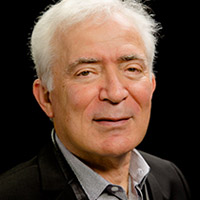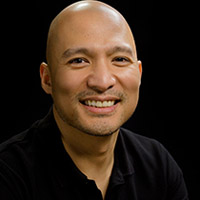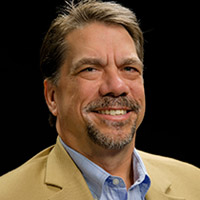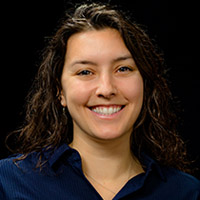Six Secrets of Effective Networking

Six Secrets of Effective Networking
What’s in a network? Not your social network, but rather your business network. Networking is a well-known principle that continues to grow in the age of the Internet. Not only do people spend countless hours using their social networks, but also more and more business professionals and companies use digital networking to meet and engage new people and new opportunities. After all, the saying is true that “it’s not what you know, it’s who you know.” While many in the business world know the value of networking, not everyone really knows how to do it right. Networking is an art, and for someone like David Bradford, the current Chairman of the Board of VIEW, his networking experience qualifies him as a fine artist. David, who wrote the book “Up Your Game: 6 Timeless Principles for Networking Your Way to the Top,” discussed his book with me and detailed each of these six important principles. For David, you might say networking is always about what’s “up?”
Start-Up
The first principle David shared with me was the “Start Up” principle. David said that means you should never show up to any kind of business event thinking what’s in it for me. You should start up by giving up. That means you offer what you can without expecting anything in return. David believes strongly in the “law of reciprocity” and he believes favors are paid back eventually.
Show Up
The next principle is simply to “Show Up.” David told me that 90 percent of success comes from simply deciding to show up when you are supposed to be there, wherever that happens to be.
Follow Up
The third principle is “Follow Up.” This is a principle that David excels at. He always takes the time to follow up with the people he meets. David told me that if you meet someone and have a great meeting but fail to follow up within 72 hours that person is likely to forget you and what you talked about. He always tries to follow up within 24 hours.
Stand Up
The fourth principle David follows is to “Stand Up.” That refers to your character. David told me that you should never do anything that would cause someone else to question your integrity or credibility. He said if you aren’t a stand-up person in life then nothing else really matters.
Link Up
Next up is the principle of “Link Up.” David said you should use every opportunity in life to make memorable connections with everyone you meet. David told me that that means you should look for meaningful ways to engage a person and find ways to link up again.
Scale Up
Lastly, David explained his “Scale Up” principle to me and said that you should always look to grow and nurture your network of contacts carefully. That requires spending time and dedication to your contacts and plenty of follow up. It also requires a sincere effort to review and consider each new networking request before just adding them by clicking the “Accept” button and then moving on. Networking is truly an art and it’s an art the David Bradford has mastered. It’s also an art anyone else can master if they put in the work and adhere to these timeless principles.
We hope you found this article about “Six Secrets of Effective Networking” helpful. If you have questions or need expert tax or family office advice that’s refreshingly objective (we never sell investments), please contact us or visit our Family office page or our website at www.GROCO.com. Unfortunately, we no longer give advice to other tax professionals gratis.
To receive our free newsletter, contact us here.
Subscribe our YouTube Channel for more updates.

Alan Olsen, is the Host of the American Dreams Show and the Managing Partner of GROCO.com. GROCO is a premier family office and tax advisory firm located in the San Francisco Bay area serving clients all over the world.
Alan L. Olsen, CPA, Wikipedia Bio

GROCO.com is a proud sponsor of The American Dreams Show.

The American Dreams show was the brainchild of Alan Olsen, CPA, MBA. It was originally created to fill a specific need; often inexperienced entrepreneurs lacked basic information about raising capital and how to successfully start a business.
Alan sincerely wanted to respond to the many requests from aspiring entrepreneurs asking for the information and introductions they needed. But he had to find a way to help in which his venture capital clients and friends would not mind.
The American Dreams show became the solution, first as a radio show and now with YouTube videos as well. Always respectful of interview guest’s time, he’s able to give access to individuals information and inspiration previously inaccessible to the first-time entrepreneurs who need it most.
They can listen to venture capitalists and successful business people explain first-hand, how they got to where they are, how to start a company, how to overcome challenges, how they see the future evolving, opportunities, work-life balance and so much more..
American Dreams discusses many topics from some of the world’s most successful individuals about their secrets to life’s success. Topics from guest have included:
Creating purpose in life / Building a foundation for their life / Solving problems / Finding fulfillment through philanthropy and service / Becoming self-reliant / Enhancing effective leadership / Balancing family and work…

MyPaths.com (Also sponsored by GROCO) provides free access to content and world-class entrepreneurs, influencers and thought leaders’ personal success stories. To help you find your path in life to true, sustainable success & happiness. It’s mission statement:
In an increasingly complex and difficult world, we hope to help you find your personal path in life and build a strong foundation by learning how others found success and happiness. True and sustainable success and happiness are different for each one of us but possible, often despite significant challenges.
Our mission at MyPaths.com is to provide resources and firsthand accounts of how others found their paths in life, so you can do the same.
Rising from Rubble to Build an Empire | Jerry Brenholtz
About Jerry Brenholtz Jerry Brenholz co-founded ATR International, Inc. in 1988. He has been instrumental in developing ATR into an important provider of contract staffing for Information Technology. In his current role, he is responsible for establishing a corporate-wide vision and defining strategic direction. Prior to ATR, Jerry held various technical positions with General…
Serial Entrepreneur | Aldo Carrascoso
About Aldo Carrascoso Aldo Carrascosois the Founder and COO / CTO of Veem, a company that utilizes Blockchain to allow individuals to make cross border payments in local currencies. The company was conceptualized by Aldo when learned that individuals making cross border payments were having to pay up to 25% of the transfer amount…
Turning Tragedy into Positive Experiences | Gerald Carroll
About Gerald Carroll Gerald Carroll is a partner with Burnham Brown law firm in their Oakland office. He specializes in Construction and Professional Liability Law. Prior to coming to Burnham Brown, Jerry along with his partner ran their own law practice, Hartman and Carroll for 20 years. Jerry graduated with honors in English from…
Why Startups Need Legal Counsel | Jackie Ammon
About Jackie Ammon Jackie Ammon is a senior associate who focuses her practice on corporate matters at WilmerHale. Prior to joining WilmerHale, Ms. Ammon was a judicial extern for the Honorable Frederick F. Mumm of the US District Court for the Central District of California. In that role, she wrote Report and Recommendation for…




